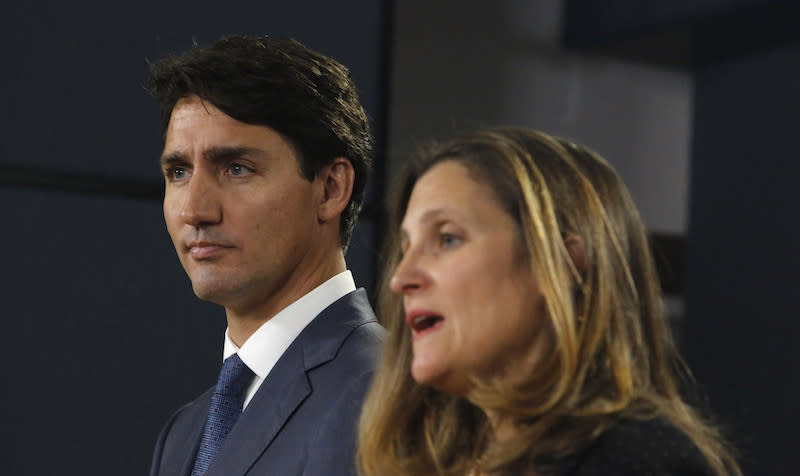What is Canada's best option to resolve the China controversy?
Canada’s arrest of a top Huawei executive has put Ottawa in Beijing’s crosshairs in a diplomatic showdown with no end in sight.
The relationship between Canada and China has since deteriorated since Meng Wanzhou was arrested at Vancouver International Airport at the request of the U.S. on Dec. 1, 2018. Ottawa says it was following through on an international treaty by arresting the high-ranking executive, but Beijing isn’t satisfied.
China has since detained two Canadians, Michael Kovrig and Michael Spavor, in what appears to be retaliation. Prime Minister Justin Trudeau’s position has remained that Canada is a country that respects the rule of law.
“It is unfortunate that China has arbitrarily and unfairly detained two Canadian citizens,” Trudeau told reporters on Jan. 11. “We have a justice system that is not subject to political interference.”
Allies have come forward to support Canada’s stance, but China appears unfazed by what Foreign Affairs Minister Chrystia Freeland has called a “large and growing group.”
It may be possible that the best option for resolving this controversy is a card that hasn’t been played.

‘China is not a democracy’
“We have to reach out to them,” Carleton University associate professor Ian Lee told Yahoo Canada. “Clearly to me, it’s going to come with a diplomatic solution that will involve the very top leadership of China, the top leadership of the U.S. (the White House) and of course, the Prime Minister’s Office in Canada.”
Yves Tiberghien, a fellow at the Asia Pacific Foundation of Canada, told CBC News’ Power & Politics that he believes it’s a “good idea” for high-level officials from Canada and China to meet.
“There can be at least be frank discussion, an exchange for information, a better understanding,” Tiberghien explained, adding direct talks “can have a positive role.”
Rather than reaching out, Ottawa has chosen to focus their public efforts on defending their position as a rule-of-law country. Freeland expressed this during a news conference with U.S. Secretary of State Mike Pompeo last month.
“The most important thing we can do is to uphold the rule of law, ensure Ms. Meng’s right to due process is respected and that the current judicial process in Canada remains apolitical,” Freeland said.
Of course, China doesn’t operate the same way Canada does.
“China is not a democracy, China’s an authoritarian country. It’s not a rule of law country, and there’s a well-known record of human rights abuses,” Lee asserted.

Things could get ‘much uglier’
The professor, who also spent time teaching in China, isn’t buying the argument that a diplomatically-negotiated agreement would undermine the rule of law.
“That is simply inaccurate, factually,” Lee said, pointing to the time former U.S. president Barack Obama granted clemency to six Iranian-Americans and one Iranian serving sentences or awaiting trial in the U.S. The move was called a “humanitarian gesture” that occurred while U.S. and Iranian officials were negotiating the Iran nuclear deal.
“A diplomatically-negotiated solution trumps these particular charges,” Lee said of the Huawei controversy. “Of course, the Americans can stay the charges. The minister in Canada, the justice minister, has the full authority in law to stay any execution order of the court. And we’ve seen in the past with other orders to extradite somebody,” he continued.
“That’s not undermining the rule of law. That is exercising the rule of law.”
Lee doesn’t see much hope for relations to improve if officials from Ottawa, Beijing and Washington, D.C., don’t put their differences aside and agree to negotiate.
“If we allow the pure, legalistic process to unfold, it could take months or years and in the process it’s going to alienate the Chinese government, it’s going to make things much uglier, they will probably continue to seize more Canadians and that’s not fruitful or productive to anybody,” Lee insisted.
“It is far more productive for the three countries to get together and come up with a negotiated agreement or settlement that will involve releasing the CFO of Huawei to China.”



